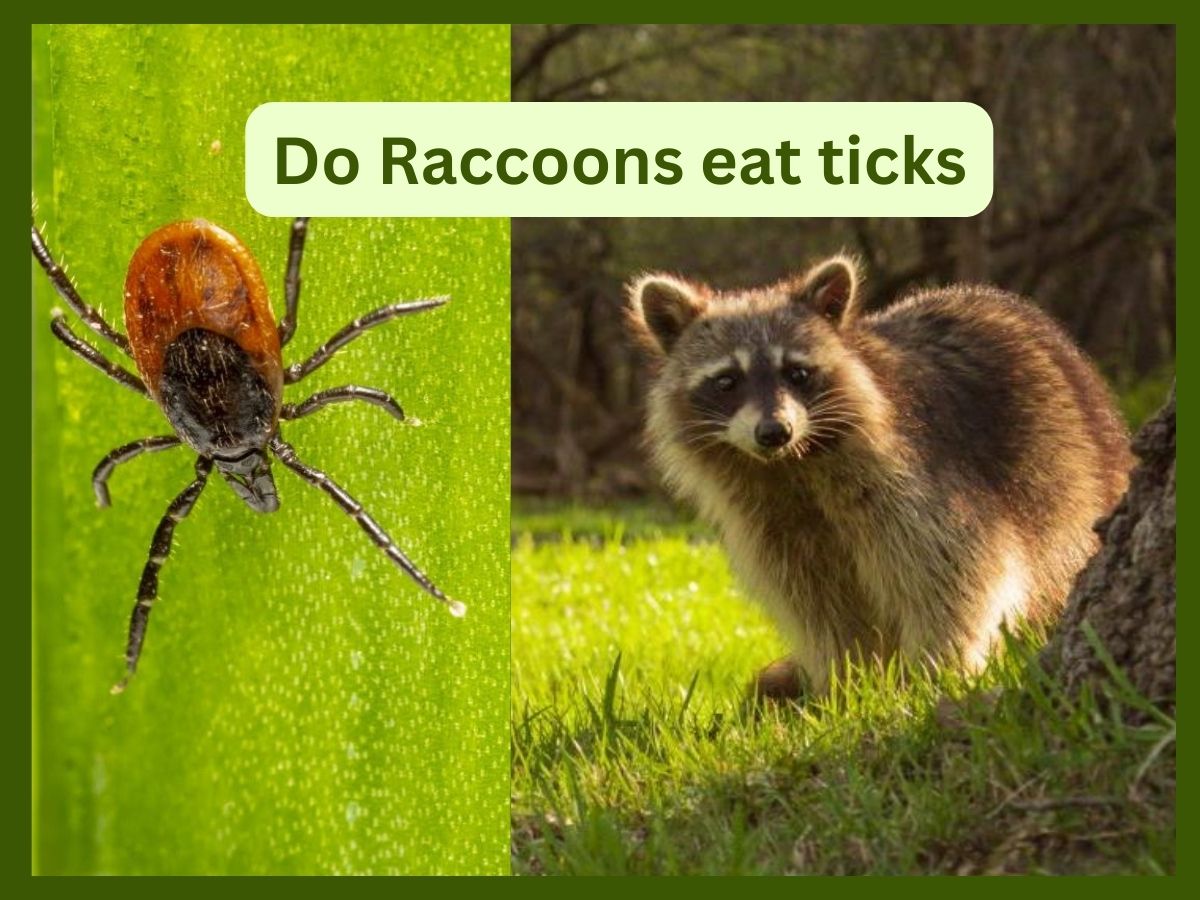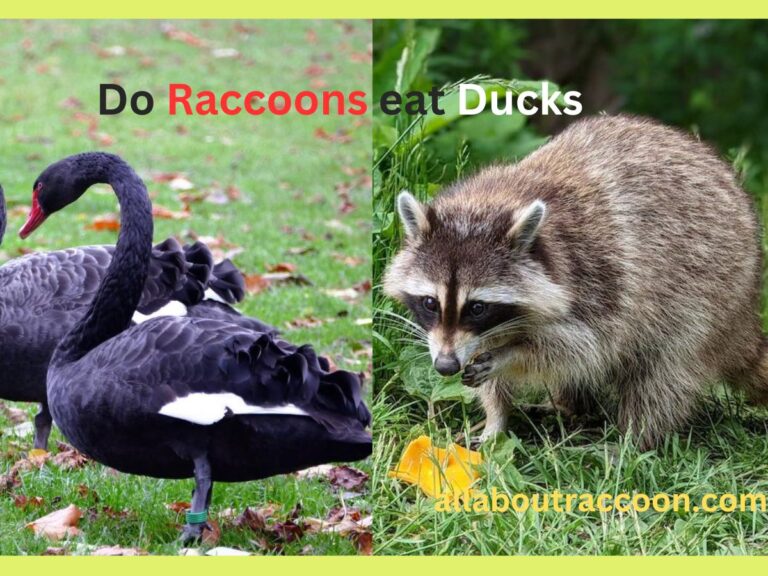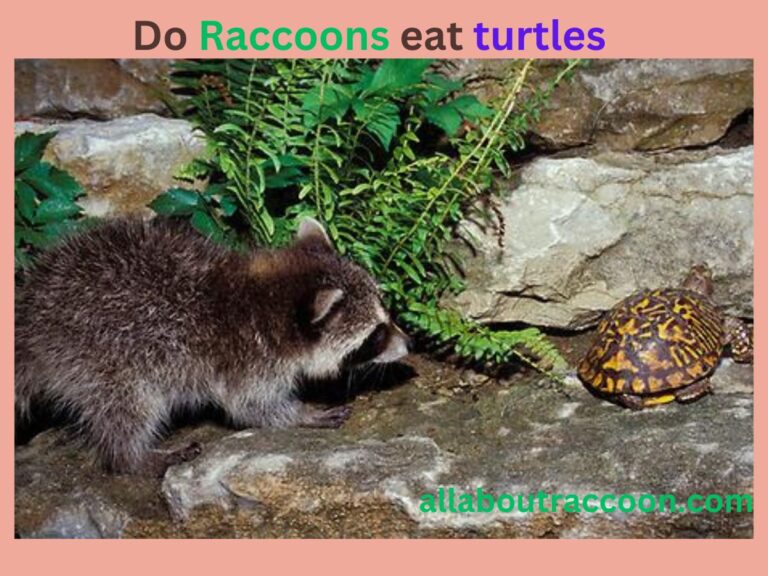Do Raccoons eat ticks?-The answer may surprise you!
Have you ever wondered if raccoons, those cute and curious creatures that roam our neighborhoods at night, play a role in controlling ticks by eating them? Well, you’re on the right web page to get deep insights into these facts! Do raccoons eat ticks? Why do they eat ticks? How do they catch the ticks? These are commonly asked questions for wild life experts and raccoon enthusiasts.
if you are seeking for exact data, stay here to read! Today, we’ll dive deep into the world of raccoons and their dietary habits to find out: whether they have a taste for these tiny ticks or not.
Nature has a way of surprising us, and you’ll be amazed at the eating behavior of raccoons about ticks. So, let’s uncover the truth!
Ticks- A brief intro
Before we explore the relationship between raccoons and ticks, you must know a little bit about ticks and raccoons.
Ticks: Ticks are tiny, blood-sucking parasites that live on the external part of host bodies. These parasites suck the blood from a host and insert infectious agents into their hosts. Thus, ticks spread diseases to animals and humans alike. There are many predators of ticks, but raccoons are also included in their predators list. Ticks are mostly found in grasses, shrubs, and trees.
Raccoons: Conversely, raccoons are nocturnal mammals known as masked bandits. These curious creatures are mainly found in the united states of America. Raccoons are omnivorous opportunistic eaters. It means they eat food items that are easily available to them including ticks. Yes, ticks, as it is the query of our concern. Let’s explore it…
Do Raccoons Eat Ticks?- A Fascinating Truth
Yes, raccoons eat ticks. They eat all types of ticks during their grooming at night. Raccoons are not actual predators of raccoons. If they find any ticks around them like in trees, bushes, or ground; they will eat them quickly. If ticks are present on the body of raccoons, they will also, eat them. They eat Ninety percent of ticks from their bodies. Thus, they are benefited in two ways:
- They satisfy their hunger.
- They cleanse their body from ticks or other parasites.
These nocturnal creatures are most active during dusk and dawn, taking advantage of the cover of darkness. Raccoons are omnivorous, meaning they’ll eat almost anything available. Their diverse diet includes fruits like bananas, oranges, mangoes etc. Similarly they eat animals like frogs, squirrels, fish, ticks, and even leftovers. But keep in mind that eat opportunistically not actively!
How do they catch the ticks?
Raccoons are often involved in grooming and picking ticks off their fur. It indicates that raccoons are tick predators. Now comes it comes to mind that ticks are clever creatures, how could they be captured by raccoons? So let me tell you…
Raccoons have keen eyes and remarkable tick-hunting skills. So, they target the ticks and grab them with their nimble paws. Basically, they opportunistically catch the ticks from trees, vegetation, bushes, and grasses. In truth, ticks can’t get escape these clever creatures’ attacks.
Are raccoons ticks carriers- Really?
Absolutely, yes!
Raccoons are tick carriers and may have these parasites on their bodies. So, they not only remove ticks from their own body but also from nearby objects. Thus, they keep their bodies clean as well as the surrounding areas. It is considered a good step to keep the tick populations in check and balance.

Do raccoons get any nutritional benefits from ticks?
Usually not!
Raccoons do not get much nutritional benefit from eating ticks. Ticks are tiny parasites. When raccoons eat ticks, they don’t get any significant nutrients from them. In truth, raccoons get their proper nutrition from their regular diet of fruits, vegetables, insects, etc. It’s also essential to remember that ticks can carry diseases, so controlling ticks and checking for them regularly on pets and wildlife is best to prevent their spread.
Do raccoons help to control the ticks populations in check?
Probably yes!
Raccoons play an important role to keep the ticks populations in check and balance. They opportunistically hunt ticks and obviously eat them. However, raccoons are not the alone predators of ticks; other animals such as opossums, birds, spiders, and certain insects are also involved in ticks preying. Additionally, environmental hazards like climate and vegetation also affect the populations of ticks.
Why it is important to keep ticks populations in control?
Let me tell you…
Nature has its own rules and regulations. Everything remains good within the limit. As access to everything is bad. Same like this the too much-increased population of ticks is also unaffordable. So, it is very important to keep the ticks populations in balance.
Ticks are parasites. They remained attached to the hosts(animals & humans) and spread dangerous diseases like Lyme, Rocky Mountain spotted fever. No doubt, these diseases have severe consequences for both humans and animals. So its very important to keep the ticks population in balance.
So, In this aspect, raccoons are like the janitors of the wild, that maintain a balanced and healthy environment.
Conclusion:
So, do raccoons eat ticks? The answer is a resounding “Yes!” – even if it’s not their primary choice on the menu.
The raccoons don’t actively hunt for ticks, but instead, they opportunistically hunt ticks. Thus they play a significant role in controlling tick populations, thanks to their grooming habits and opportunistic nature.
So, the next time you spot a raccoon on a nighttime adventure, remember that these clever masked bandits are silently working to keep the tick population in check, making the outdoors safer for everyone.
Embrace the wonders of nature, for there’s always more to discover beyond the surface! And now you know, raccoons are not only curious and cute; they are nature’s little pest control experts too.
FAQ:
Yes, surely! Raccoons are tick carriers. They may carry the ticks in their fur. They usually groom their fur and eat the ticks to cleanse their body.
Yes, ticks are responsible for Lyme disease. If the infection is spread in the raccoons, then this disease is also spread in humans. If humans eat food contaminated with the raccoons’ feces, they may carry the disease.
Absolutely, Yes! A tick’s bite transmits infectious agents that are seriously dangerous to your health. Its bite leads to health problems like blood, joints, and kidney damage.
The baby raccoons may also carry parasites like mites, fleas, ticks, bugs, etc. Baby raccoons are also ticks carriers like adult ones.
Yes, they have! Raccoons are responsible for many viral and bacterial diseases. They carry parasitic such as fleas, ticks, and lice.







